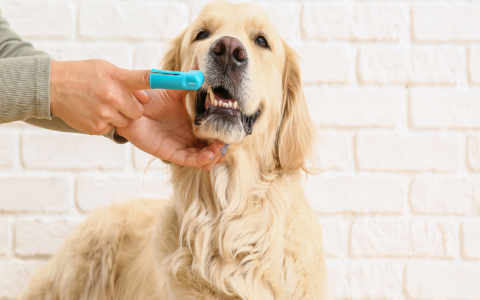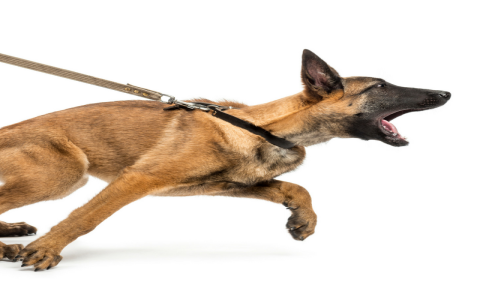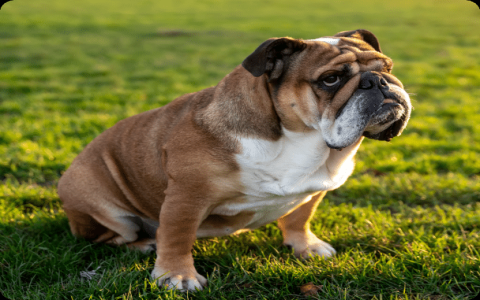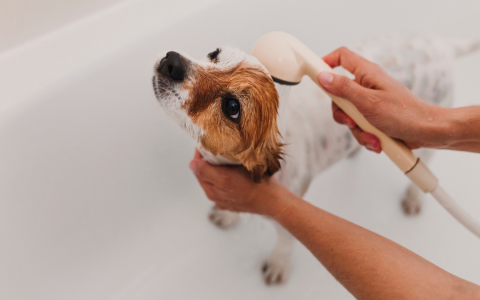Why does dogs breath smell like fish? Learn about the potential dental issues causing that unpleasant smell.
Okay, so the other day, I noticed something kinda gross. My dog, bless his heart, came up for a cuddle, and whoosh! His breath hit me, and it smelled distinctly... fishy. Not just regular dog breath, you know? This was full-on fish market smell. Naturally, I couldn't just ignore that, so I decided I needed to get to the bottom of it.
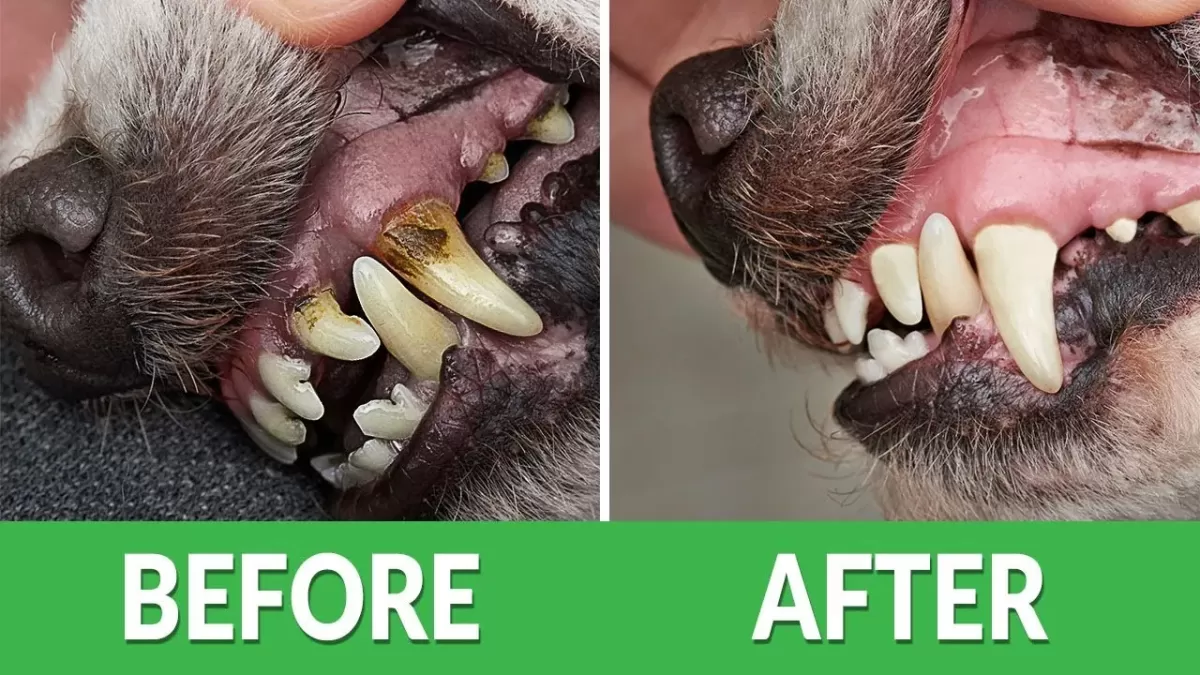
First thing I did was the obvious stuff. I gently tried to get a look inside his mouth. Were his teeth okay? Gums looking pink and healthy? I didn't see anything immediately awful, no super obvious rotting tooth or anything bleeding. I wracked my brain – had he eaten anything weird? Snuck some fish scraps? Nope, couldn't think of anything out of the ordinary he'd consumed recently.
So, next step, I did what most of us do these days – I started looking around for info. Just general searching, trying to figure out what makes a dog's breath smell like fish. A few common themes kept popping up.
Checking the Usual Suspects
Based on what I was reading, I narrowed it down to a few possibilities:
- Dental problems: This seemed like the most common culprit. Things like tartar buildup, gum disease (gingivitis), or even an abscessed tooth could apparently cause some pretty rank smells, sometimes fishy.
- Anal glands: Okay, this one was less pleasant to think about. Apparently, those little glands near their rear end can get impacted or infected, and when the dog licks the area, the smell can transfer to their breath. The descriptions often mentioned a fishy odor. Ugh.
- Diet: Sometimes, the food itself, especially if it contains fish ingredients or fish oil supplements, can contribute to that smell lingering on their breath.
Armed with this info, I went back for a closer look at my dog. I really tried to inspect his teeth and gums again. I did notice some brownish buildup on his back teeth – tartar, definitely. His gums looked a little redder around those teeth than elsewhere. So, dental issues were looking like a strong possibility.
Then I considered the anal gland thing. Honestly, I wasn't keen on investigating that myself. I know some people learn to express them, but that felt beyond my pay grade and comfort level. I did a quick check back there, visually, didn't see anything obviously swollen or leaking, but I knew internal impaction could still be a thing. I decided to leave that particular check to the professionals if it came to it.
Finally, I double-checked his food bag. Yep, it had fish meal listed in the ingredients, though it wasn't the main protein source. He wasn't getting any fish oil supplements directly, though.
Time for Professional Help
At this point, while I suspected the teeth were the main issue, the anal gland possibility and just wanting a proper diagnosis made me decide it was time for a vet visit. Self-diagnosing is one thing, but fixing potential dental disease or gland issues isn't really a DIY job.
So, I made an appointment. I explained the fishy breath situation to the vet. She did a thorough checkup, paying close attention to his mouth. Sure enough, she confirmed he had moderate dental disease – significant tartar buildup and gingivitis, especially on the molars. She also did a quick check of his anal glands. Turns out, they were a little full but not severely impacted or infected. She expressed them right there (better her than me!).
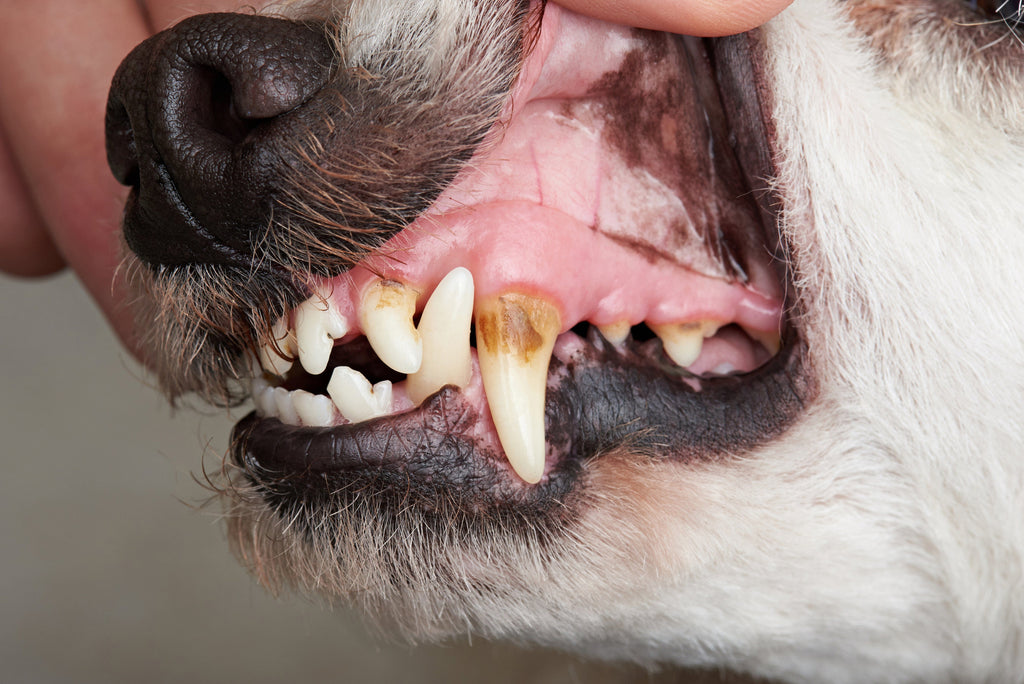
The vet recommended a professional dental cleaning under anesthesia to remove the tartar, check for any hidden problems below the gumline, and polish his teeth. She agreed the glands might have contributed slightly, but the main source of the fishy odor was likely the bacteria breeding in his mouth due to the dental issues.
Getting Rid of the Fish Smell
We scheduled the dental cleaning for the following week. In the meantime, just having the anal glands expressed seemed to help a tiny bit, but the fishy smell was definitely still there. After the cleaning, though? Big difference. The vet called after the procedure and said they removed quite a bit of tartar and everything else looked okay thankfully. When I picked him up, his breath, while maybe not minty fresh (he's a dog, after all), was SO much better. That overwhelming fishy odor was gone.
So, what did I learn from this?
- Fishy breath isn't normal and usually points to an underlying issue.
- Dental health is super important and often the cause of bad breath, fishy or otherwise. Regular checks and cleanings are key.
- Anal glands can cause weird smells, including fishy ones, transferring to the breath. It's worth considering if the mouth looks okay.
- Sometimes, it takes a vet visit to really figure things out and get the right treatment.
It was a bit of a process, starting with noticing the smell, doing some basic checks, researching possibilities, and finally getting a professional diagnosis and treatment. But hey, we got there in the end, and no more fishy kisses, which is a win for everyone!
